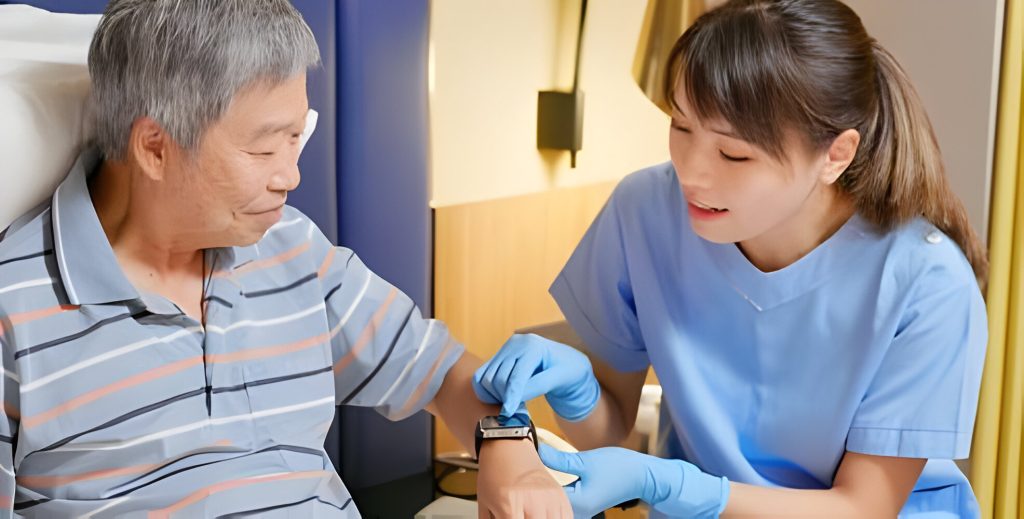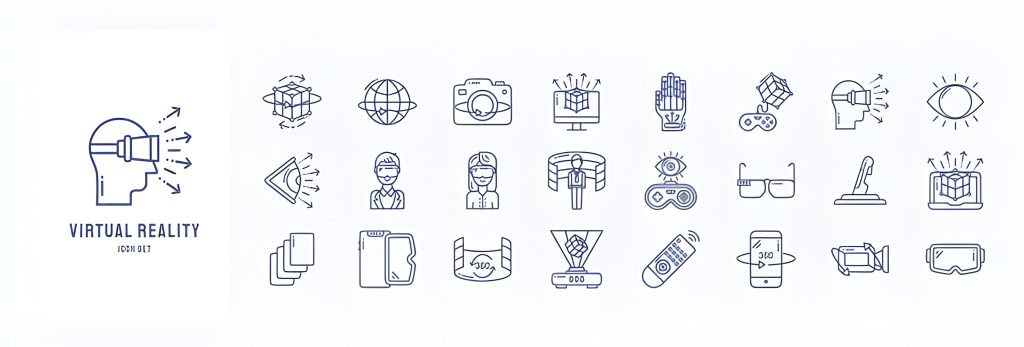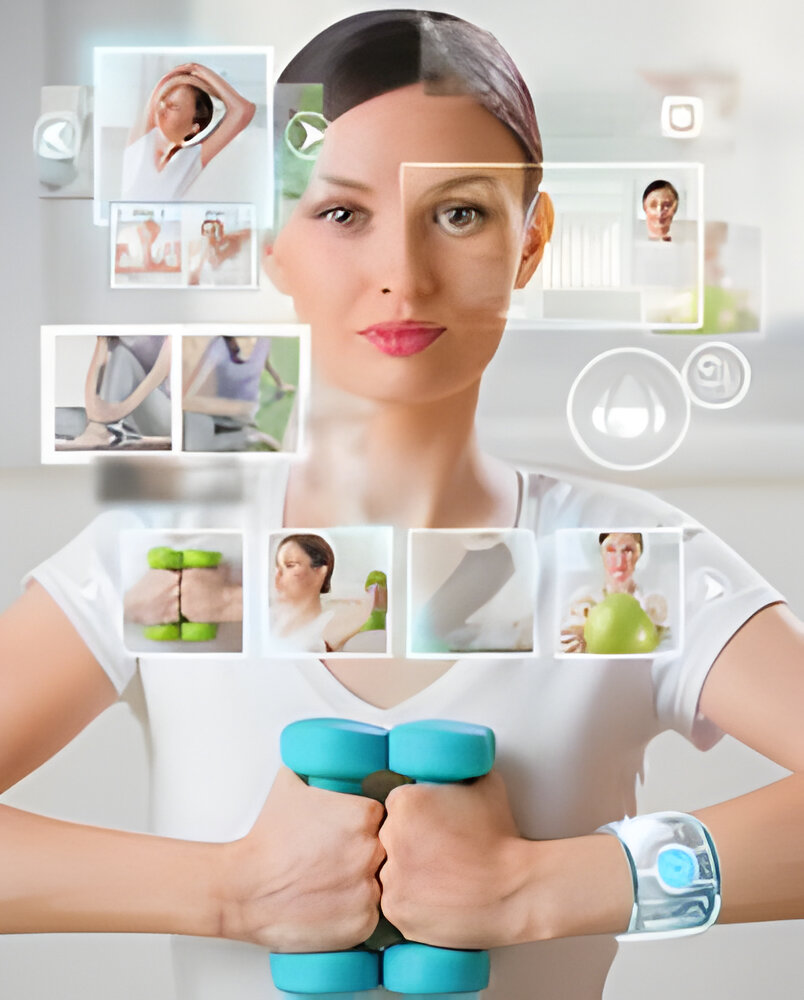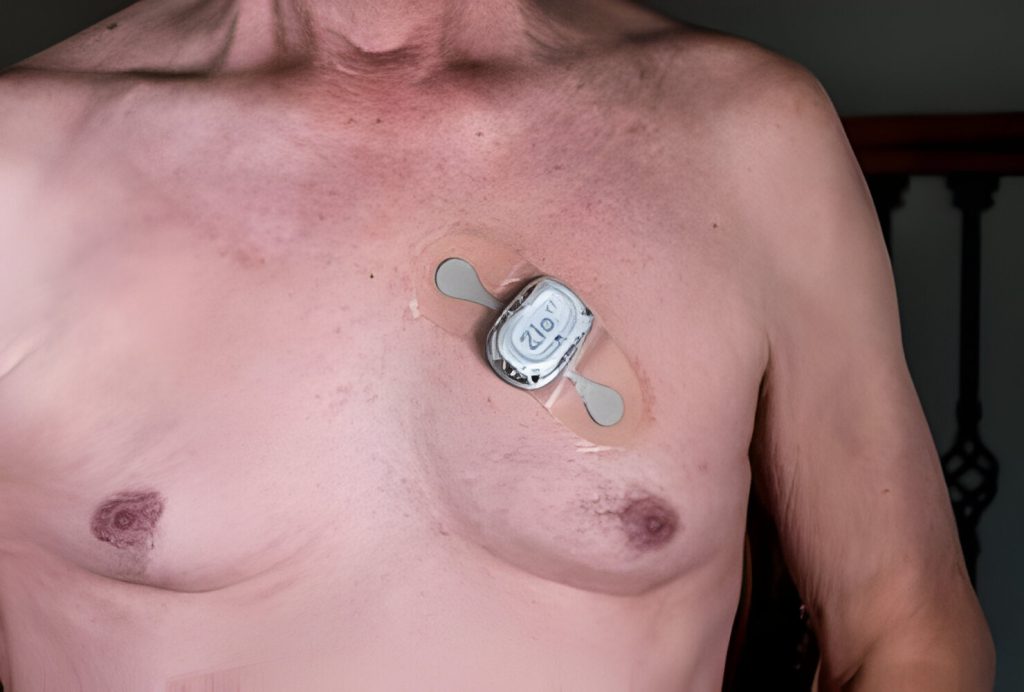Forget Superheroes: Meet the Wearable Health Tech Saving Lives!
Wearable Wonder: The Life-Saving Tech You Need to Know About!

Introduction: The Rise of wearable health tech that saves lives
The incorporation of wearable health technology into our everyday routines has transformed the methods we use to track, control, and enhance our well-being. From fitness trackers to smartwatches that can identify irregular heartbeats, these gadgets have evolved from simple accessories to essential life-saving instruments. One such example is the development of wearable devices that can detect early signs of health issues like heart attacks or strokes, enabling individuals to seek timely medical intervention and potentially saving their lives.
The rise of wearable health tech empowers individuals and allows healthcare professionals to monitor patients remotely. This real-time data collection provides valuable insights into an individual’s health status and enables personalized treatment plans tailored to their specific needs. These devices can change preventative care by spotting risk factors early and promoting healthy habits before major health problems occur.
With continuous technological advancements and increasing collaboration between healthcare providers and tech companies, the future of wearable health tech looks promising for saving lives and transforming the way we approach healthcare. As we enter this era of innovation, it is crucial to acknowledge the vast potential these devices have for advancing a healthier society while also highlighting the significance of privacy and data security in maximizing their benefits for enhanced patient outcomes.
How Wearables Monitor Vital Signs
Wearable health technology has transformed the monitoring of vital signs, providing real-time data that could potentially save lives. Smartwatches and fitness bands are examples of these devices that continuously track parameters such as heart rate, blood pressure, and oxygen levels with impressive accuracy. Wearables give prompt feedback so people can manage their health better.
One key advantage of wearable health tech is its ability to detect subtle changes in vital signs that may indicate underlying health issues. For example, an abnormal increase in heart rate during exercise could be a sign of overexertion or an undiagnosed condition. By alerting the wearer to such changes in real-time, wearables enable proactive interventions that can prevent serious complications.
Moreover, the convenience and unobtrusiveness of wearable health tech make it ideal for continuous monitoring throughout daily activities. This constant stream of data provides a comprehensive picture of an individual’s overall health status, allowing for early detection of potential problems and personalized interventions. With wearables becoming increasingly sophisticated and accessible, the potential for these devices to improve medical outcomes and enhance preventive care is boundless.

Kinds of wearable tech
Wearable technology is not just limited to smartwatches and fitness trackers; it also encompasses groundbreaking wearable health tech that has the potential to save lives. An illustration of this is the utilization of wearable health technology to track vital signs instantly, enabling early identification of medical concerns and swift intervention. These gadgets provide a fresh dimension of ease and availability to healthcare, granting individuals unprecedented authority over their health and well-being.
In addition to monitoring health indicators, wearable health tech devices can also provide personalized feedback and recommendations for improving overall wellness. For example, some smart garments are designed to track posture and movement, helping users prevent injuries and improve their physical performance. This intersection of technology and healthcare opens up a world of possibilities for preventive medicine and personalized care, revolutionizing the way we approach health management.
The ongoing progress in wearable health technology is showing us the immense potential these devices hold for revolutionizing healthcare services worldwide, particularly in saving lives. By harnessing the power of data analytics and artificial intelligence, wearable tech can offer valuable insights into individual health patterns and trends, enabling targeted interventions that can ultimately save lives. The integration of these innovative technologies into everyday life represents a powerful shift towards proactive wellness management that holds immense promise for the future of healthcare.
Early Detection of Health Issues
Wearable health technology is a groundbreaking innovation in the healthcare field, offering life-saving benefits through early detection. These cutting-edge devices, such as smartwatches and fitness trackers, come equipped with sensors that monitor vital signs and identify irregularities in real time. By continuously gathering information on crucial metrics like heart rate and blood pressure, wearable health technology can notify users of potential health concerns before they become serious.
The true value of wearable health technology lies in its capacity to deliver personalized insights into an individual’s health condition. Through ongoing monitoring and analysis of data, these devices can pick up on subtle changes that might otherwise go unnoticed. This proactive approach to healthcare empowers individuals to manage their well-being effectively and seek medical assistance when needed. Ultimately, early detection through wearable health tech not only saves lives but also enhances overall quality of life by promoting preventive care and timely interventions.

Remote Patient Monitoring Benefits
Remote patient monitoring (RPM) offers numerous benefits that are revolutionizing the healthcare industry. One key advantage is the early detection and prevention of medical issues through continuous monitoring of vital signs and symptoms. This proactive approach allows for timely interventions, reducing hospital admissions and improving overall patient outcomes.
Wearable health tech plays a crucial role in RPM by providing real-time data to healthcare providers, enabling personalized care plans tailored to individual needs. These devices not only enhance patient engagement but also promote self-management of chronic conditions, leading to better adherence to treatment regimens. Ultimately, wearable health tech saves lives by facilitating remote monitoring of patients in real-time, ensuring prompt response to any critical changes in health status.
Tracking Progress and Improving Health Outcomes
When it comes to tracking progress and improving health outcomes, wearable health tech has emerged as a game-changer. These innovative devices provide real-time data on various metrics like heart rate, sleep patterns, and physical activity, giving individuals the power to take charge of their health in unprecedented ways. Utilizing wearable health technology that saves lives empowers individuals to make well-informed choices, resulting in substantial enhancements to their holistic health.
One remarkable aspect of wearable health tech is its potential to save lives by detecting critical health issues early on. For example, certain devices can monitor abnormal heart rhythms and alert users when medical attention is needed. This early detection not only improves individual outcomes but also contributes to larger public health efforts by reducing the burden on healthcare systems. As advancements in wearable technology continue to evolve, we are witnessing a shift towards personalized and preventive healthcare that empowers individuals to manage their health journey proactively.
Addressing Privacy and Security Concerns
As wearable health technology continues to seamlessly integrate into our daily routines, safeguarding privacy and security remains of utmost importance. While the convenience and life-saving potential of these devices are indisputable, there is also a looming threat of sensitive information being compromised.
One effective strategy for bolstering security in wearable health technology involves implementing advanced biometric authentication measures like fingerprint or facial recognition to restrict access solely to authorized individuals. Additionally, ensuring transparency in data collection practices emerges as a pivotal factor in mitigating privacy concerns associated with wearable health technology. By prioritizing user privacy and security in the design and implementation of wearable health tech, we can harness its life-saving potential while safeguarding sensitive personal information from misuse or exploitation.
Real-life examples of life-saving interventions
Wearable health tech has revolutionized the way we monitor and manage our health, often playing a crucial role in life-saving interventions. Take, for example, the story of Sarah, a 35-year-old woman who credits her wearable health tech device with alerting her to an irregular heartbeat. Thanks to the early detection, she was able to seek medical attention and undergo a life-saving procedure. In another instance, John, a long-distance runner, collapsed during a race due to dehydration. Luckily, his wearable health tech device automatically detected his plummeting hydration levels and alerted emergency services in time for him to receive urgent care.
These real-life examples highlight the tangible impact that wearable health tech can have on saving lives by providing invaluable data in real time. By leveraging advanced sensors and algorithms, these devices not only track vital signs but also analyze patterns and anomalies that can indicate potential health risks before they escalate into emergencies. As technology continues to progress, wearable health devices are becoming more sophisticated in their capacity to anticipate and avert life-threatening situations, ultimately leading to the preservation of lives.

Ethical considerations in using wearable health tech
When it comes to using wearable health tech that saves lives, several ethical considerations must be taken into account. One of the key concerns is the privacy and security of personal health data collected by these devices. With sensitive information being constantly monitored and stored on these wearables, users are vulnerable to potential breaches and misuse of their data.
Additionally, there is also concern about how insurance companies or employers can use this vast amount of health data to discriminate against individuals based on their health status. This raises questions about consent and control over one’s health information when using wearable health tech. As the adoption of life-saving wearable health technology increases, it is essential to establish ethical standards and regulations to safeguard users against any possible risks or misuse associated with these devices.
Conclusion: The Future of Wearable Health Tech
As we look ahead to the future of wearable health tech, it is clear that these innovative devices will continue to revolutionize the healthcare industry. The potential for wearables to save lives by providing real-time monitoring and early detection of health issues is truly groundbreaking. The evolution of technology is paving the way for the development of advanced wearable devices that go beyond monitoring vital signs to offering tailored health advice based on data analysis.
AI and machine learning in wearable tech can save lives with accurate predictions and early interventions. Thanks to their smart wearable devices, individuals could be alerted to potential health risks before they escalate. As we embrace this evolution in healthcare technology, policymakers, healthcare providers, and tech developers must collaborate to ensure the ethical use and widespread accessibility of these life-saving innovations.
FAQ
What is wearable health tech?
The innovation of wearable health technology has completely transformed how we monitor our well-being in the present moment. These gadgets, like smartwatches and fitness trackers, do more than track steps or monitor heart rates. They can now detect heart rhythm issues, monitor blood oxygen, and call for help in emergencies.
Wearable health tech saves lives and helps people make informed decisions about their health by collecting data on well-being for positive behaviour changes. Ultimately, wearable health tech is not just a trend but a transformative tool that has the potential to impact our overall quality of life significantly.
What is wearable technology in the healthcare market?
Wearable health technology, also known as wearables, refers to devices that are worn on the body to monitor and track health data in real time. These range from smartwatches to medical sensors that measure vital signs. The wearable technology market in healthcare is rapidly expanding as consumers increasingly seek ways to take control of their health and wellness.
Wearable tech enhances healthcare with continuous monitoring. This allows for a holistic assessment of an individual’s health status, empowering healthcare providers to enhance patient care and treatment strategies based on real-time data insights. In addition to tracking physical health parameters, wearables are instrumental in monitoring mental well-being indicators like stress levels and sleep patterns. With ongoing technological advancements, we anticipate the emergence of more advanced wearable devices that will transform the landscape of daily healthcare management.
What is the future of wearable health technology?
The demand for wearable health technology is skyrocketing, leading to the emergence of cutting-edge features like live monitoring of vital signs, predictive analytics for detecting diseases early, and personalized health suggestions. Thanks to progress in material science and miniaturization methods, wearables are becoming sleeker and more comfortable, effortlessly blending into our routines while offering crucial health information.
Moreover, wearable technology is no longer limited to fitness trackers or smartwatches; it is evolving to encompass medical-grade devices that can continuously monitor chronic conditions like diabetes or heart disease. These changes show a move toward proactive healthcare, empowering people to manage their health through wearable devices.
Which wearable tech is best?
When it comes to wearable technology in the healthcare market, one of the most prominent contenders is the Apple Watch. With its advanced health monitoring features, such as ECG readings and fall detection, the Apple Watch has become a popular choice for consumers looking to track their fitness and wellness goals seamlessly. Additionally, its integration with the Health app allows for comprehensive data analysis and sharing with healthcare professionals.
Another noteworthy player in the wearable tech arena is Fitbit, known for its range of activity trackers designed to monitor various health metrics such as heart rate, sleep patterns, and exercise intensity. Fitbit is user-friendly and has a long battery life, which is great for tracking health goals. The community platform promotes friendly competition and accountability.
In summary, Apple Watch and Fitbit both provide innovative solutions for various aspects of healthcare monitoring and management. While Apple Watch excels at providing advanced health features within a sleek design tailored for tech-savvy users, Fitbit remains a reliable choice for those focused on tracking daily activities and workouts with precision. Ultimately, choosing between these two wearable technologies boils down to individual preferences and specific needs for achieving a healthier lifestyle through personalized data insights.



